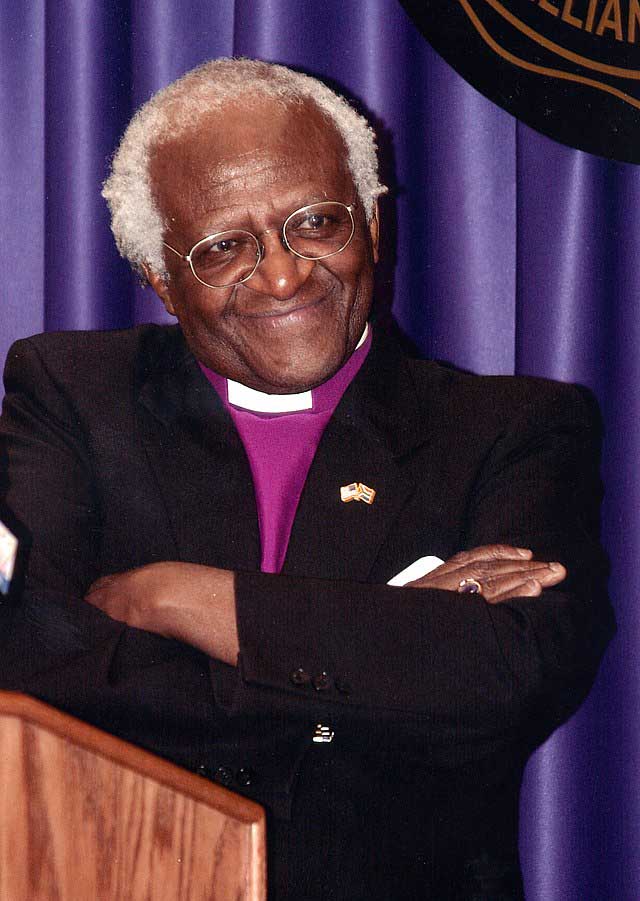It is hard to believe that racial segregation existed until 1990. But it did. Apartheid, as it was known in Afrikaans, the last remnant of institutional racism, was banished thanks to the heroic efforts of the likes of Desmond Mpilo Tutu, who passed away hours ago, aged 90.

Steely resolve throughout his life
A child affected with Polio, Desmond Tutu worked part-time while making academic gains.
His love for reading and theology led him towards the clergy, and he eventually rose to the positions of the Bishop of Johannesburg (1985 to 1986), and the Archbishop of Cape Town (1986 to 1996).
Desmond Tutu won the noble peace prize in 1984. The Awards Committee declared him a winner “for his role as a unifying leader figure in the non-violent campaign to resolve the problem of apartheid in South Africa.”
A revered figure in most of South Africa, he stood alongside Nelson Mandela in bringing down the walls of racial segregation in the country.
Expressing condolences to his spouse Leah Tutu and Tutu Family, the South African President Cyril Ramaphosa articulated the late Archbishop’s character.
“A man of extraordinary intellect, integrity and invincibility against the forces of apartheid, he was also tender and vulnerable in his compassion for those who had suffered oppression, injustice and violence under apartheid, and oppressed and downtrodden people around the world.”
Tributes poured in from across the world for the deceased Archbishop.
Former US President Barack Obama, who awarded Desmond Tutu with the Presidential Medal of Freedom in 2009, called Tutu a “mentor, a friend, and a moral compass.”
The funeral arrangements are being coordinated by the Church and Government of South Africa.